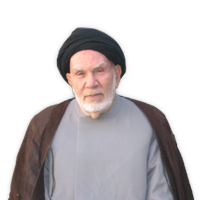Aristotle - part1
In the Name of God
One aspect of the teachings of Professor Mosavi is discussing the lives of philosophers and researchers who lived before Christ. The reason for this is to make those who are eager to travel in the world of philosophy and metaphysics acquainted with the thoughts and scientific minuteness of the life of a philosopher.
In Professor Mosavi’s site we have provided a summary of the life of Socrates. Now we have decided to outline the lives of Aristotle and Plato who contributed to Peripatetic Philosophy.
Introducing Aristotle:
Aristotle, renowned Greek philosopher known as ‘the first teacher’, was the leader of the Peripatetic School.
He was also known as ??????????? or Aristotél?s in Greek. All these names mean ‘lover of philosophy’ or ‘virtuous scholar’.
The Life of Aristotle Written by Ahmad Lotfi (One of the pillars of the scientific movement in Egypt as explained in his book ‘Science of Ethics’):
Aristotle was known as ‘the first teacher’ and was from Greece.
He was Born in 384 BC and lived 63 years.
He was a student of Plato for 20 years!
Aristotle was held in high esteem by Plato to a degree that he called him ‘the wisdom of the school’, ‘the favorite of the school’ and ‘the good student of the school’.
He said: His greatness was to the extent that he was the founder of formal logic and ‘the intellect of man’ and everyone was astonished by his knowledge.
Abu Salman Mantiqi considers ‘Aristotle’s metaphysics’ as a principal.
Shahrzoori in his book Nizhatul Arvah says:
When Aristotle reached the age of 8, his father took him to Athens, which was then known as ‘the city of the wise’, and entrusted him into the hands of a teacher who was expert in the science of clearness and eloquence of language. He spent 9 years learning literature.
(However, some philosophers at that time rejected the science of literature and called teachers of literature ‘teachers of children’. Contrary to this, the Greek called literature ‘the science surrounding all other sciences’ and believed that the public needed it and that he who was more eloquent and spoke using the best words and terms was more worthy of humanity and his words influenced the hearts.)
After 9 years, when he was 17 he was led astray by different sciences, none of which satisfied and comforted him. At the age of 27 he turned to philosophy and became interested in learning metaphysics.
Some say his father, Nicomachus, was a physician or a king and led a luxurious life.
(At that time the science of medicine was solely with the kings but from the time of Hippocrates and the Hippocratic Oath its exclusivity was removed.)
But Aristotle after years of being led astray by different sciences left all his father’s luxury and turned to philosophy and metaphysics.
His power in knowledge had reached a degree that his teacher, Plato, described him as follows:
He requires a bridle not a spur!
(Note: A bridle is a harness fitted about a horse's head and used to restrain or guide the animal. A spur is a short spike or spiked wheel that attaches to the heel of a rider's boot and is used to urge a horse forward. What Plato means is that Aristotle moves so rapidly in knowledge and science that he needs to be restrained not to be instigated.)
Aristotle’s works:
Logics, nature, theology, ethics
This was a summary of the life of Aristotle but:
Two wise sentences by him:
v He says: An ignorant person is like a drowning person; advise him but do not get close! If he is saved you will win and if he drowns you will not drown along with him.
v He says: It is necessary for the students of metaphysics to purify their bodies and souls before commencement of their studies (In other words, they should free themselves of all imperfections and if they do not do so, they will not be able to benefit from metaphysics).
Derived from Professor Mosavi’s speech of 1998.
In the coming articles we will continue discussing Aristotle’s life from the following aspects:
1. Aristotle’s connection with vilayat (our Imams from Imam Ali to the twelfth Imam, Imam Zaman) by Mohaghegh Davani
2. Evolution of one’s essential nature from the viewpoint of Aristotle
3. The greatness of Aristotle according to our Prophet Mohammad (PBUH) (Derived from Nizhatul Arvah by Fazil Shahrzoori and Kholasatul Hayvan by Abdoljavad Tatavi).




Comments
0